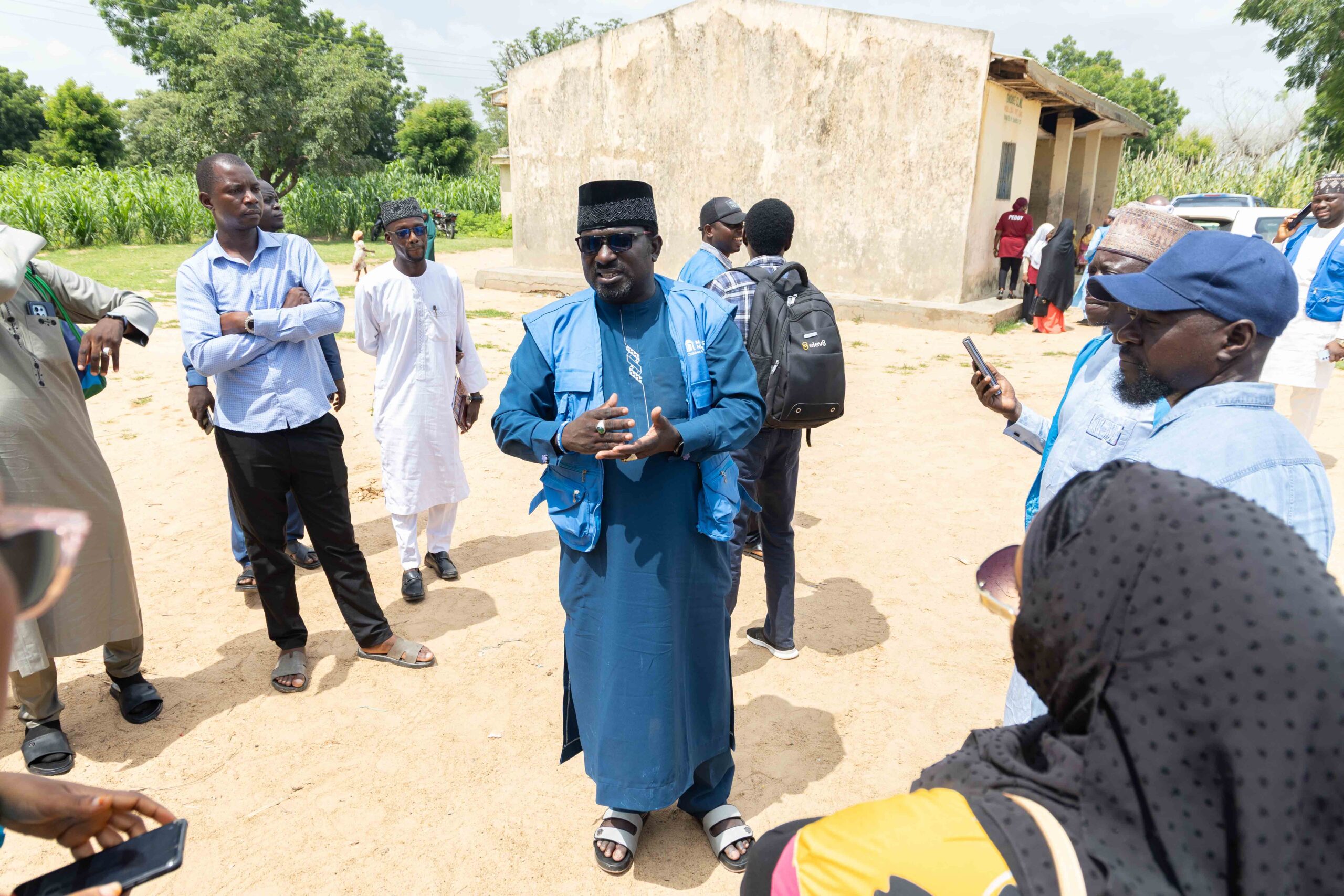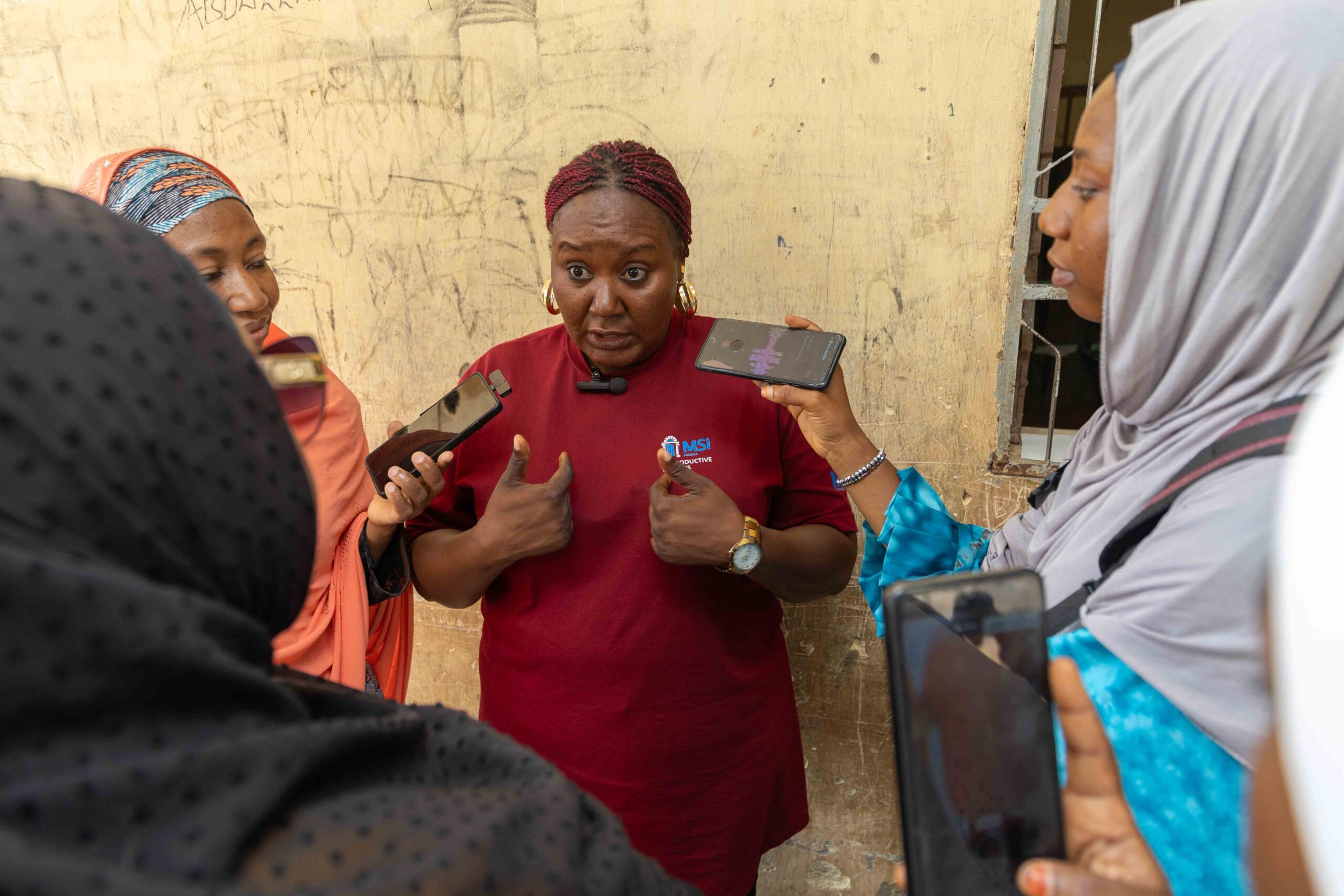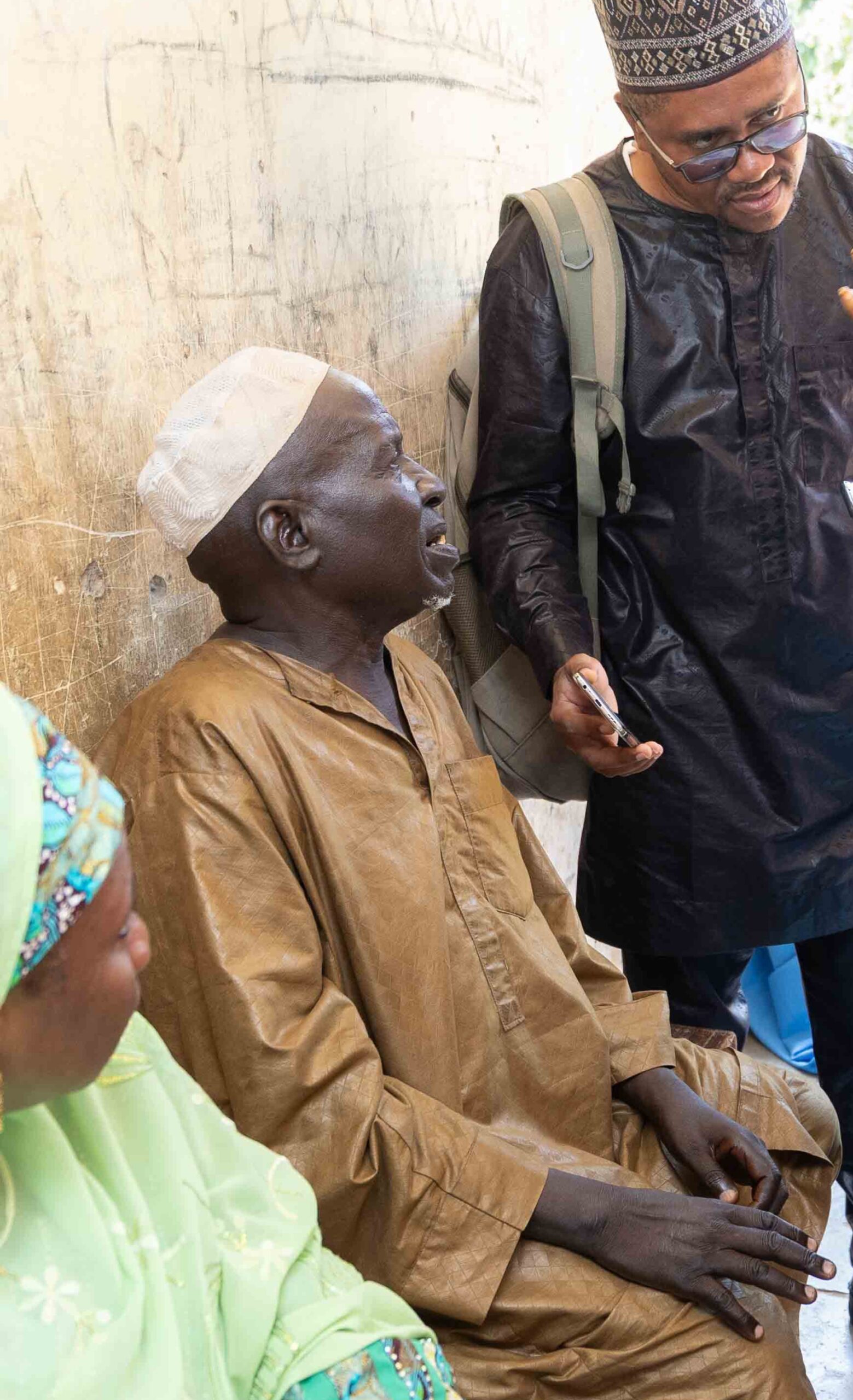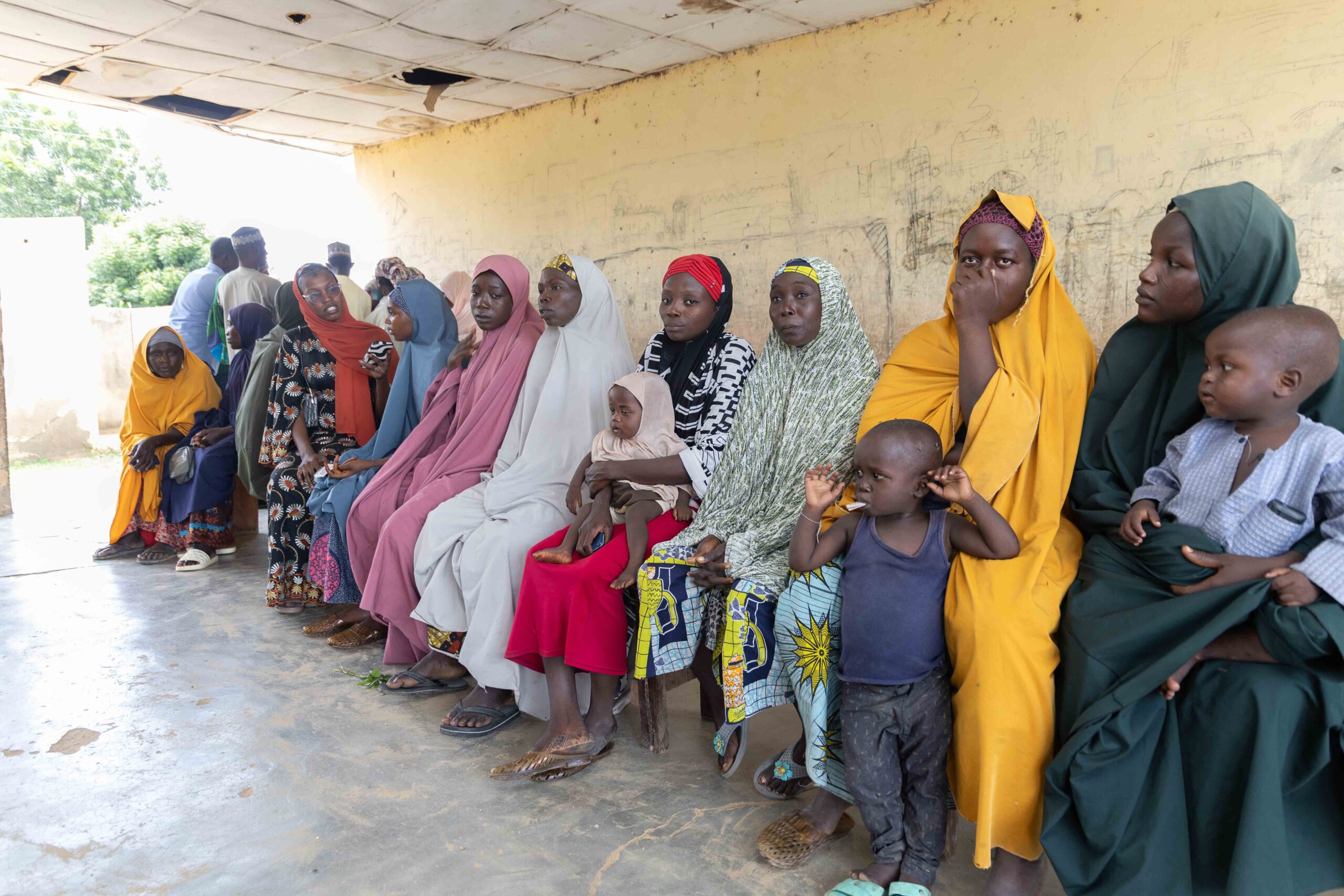At just 25, Halima Adamu has already faced more childbirth complications than many women her age; she has lived through the kind of pain that makes every childbirth a risk.
As a mother of three from Kanyar Utai, a small rural community in Wudil Local Government Area of Kano State, Halima said each delivery came with serious challenges that left her weak for months.
“Each time I gave birth, it came with complications. After delivery, I wouldn’t come out for almost ten months,”she said.
Halima revealed that with myths surrounding child spacing which included barrenness she wanted to avoid it at all cost.
However, the story has changed. For one year, Halima says she feels none of the negative effects people warned her about after she accepted (Intrauterine Device, IUD) method of child spacing.
The lack of child spacing is partly one of the reasons for the high maternal and child mortality rates in Nigeria, especially in the northern region.
Research has shown that many women give birth too frequently without allowing enough time for their bodies to recover, increasing the risk of complications during pregnancy and childbirth. The situation is further worsened by poor access to child spacing services, inadequate healthcare facilities, and low antenatal attendance, particularly in rural areas.
In Kano State, a 2025 report shows that only around 10% of women of reproductive age (15-49) use modern contraceptive methods, despite increasing from about 5% in 2018, a clear indicator of the longstanding challenge of child-spacing.
However, things are beginning to change, as more women in Kano are now making informed choices about when to have children and the number of children they want. This gradual shift is driven by an initiative introduced in 2024 known as the Mobile Outreach Channel implemented by Marie Stopes International (MSI) Nigeria.
Mr. Abdullahi Saminaka, a Social Norms Advisor for MSI Nigeria Reproductive Choices revealed that mobile outreach are part of their service delivery channels.

According to him, through the outreach, trained clinical service providers visit hard-to-reach communities, offer counselling, and provide different child spacing methods for both women and men.
“Before we begin delivering our services, we make sure to engage with the gatekeepers that is the traditional and religious leaders,” he explained.
“In Kano, the community head is known as Mai Unguwa, while the religious leader is the Imam. Wherever we go, we work through the Ward Development Committee (WDC) because they are very influential. We always leverage the community structures that already exist.”
“Through the Mobile Outreach Channel, the team moves from one community to another, all in an effort to ensure that no woman is left behind,” he revealed
According to MSI Nigeria, in 2024 alone the mobile outreach team travelled over 470,000km to 6,300 sites to ensure that they reach the most marginalised communities.
In Nigeria, there are nine thousand, eight hundred (9,800) mobile outreach while there are only two in Wudil LGA of Kano State.
In Wudil, Mrs. Zacheria Baye, a Clinical Service Provider with the Mobile Outreach Channel under Team A Kano, is among those leading efforts to promote child spacing. For her, every outreach starts long before the medical equipment is unpacked.

“Before we come for outreach services, we do mobilization so that women can ask their spouses or husbands for permission before they come for the services,” she explained.
Mobilization, she said, often involves traditional and religious leaders, who hold great influence in their communities.
“We utilize the traditional and religious rulers, especially during mobilizations. We meet them one-on-one first, then when we come for our services through the facility in charge, we invite the religious leaders,” she said.
“Some of them also have misconceptions about child spacing, so we explain everything; the benefits, possible side effects, and how it helps families plan better.”
According to her, the team also engages women through group and individual sessions, using the opportunities to dispel myths and misinformation. Before offering any service, they take time to explain the possible side effects and emphasize that these effects are only temporary.
She said counselling sessions often help women understand that the hormonal changes that come with contraceptives such as irregular bleeding are normal.
“We tell them it’s just like pregnancy hormones; your body is getting used to it. With time, it fades. If it persists, we ask them to come back with their card, and we’ll either change the method or give medication,” she said.
Mrs. Baye explained that men usually access condoms, while women receive long-acting reversible contraceptives like implants and IUDs, as well as short-term methods such as injectables and pills.
“We also advise clients on permanent methods, either for men or women, but we don’t offer that in outreach. When we get such clients, we book them and direct them where to access it,” she said.
The outreach is not without obstacles. According to Mrs. Baye, some women are willing to take up family planning services, but their husbands object.
“Sometimes the women want the service, but the men won’t agree,” she said.
“Also, during the rainy season, the number of clients drops because many go to the farm. You can’t stop them from farming; it’s their livelihood. They come only after they’re done at the farm, I can’t stay beyond closing hours.”
Despite the challenges, the outreach has made significant progress. Mrs. Baye revealed that within a year, the outreach team in Wudil provided over 1,000 services to women.
“On a good day, we can get between 70 to 80 clients. Some even come with their husbands, while others are referred through the hospital in charge. Sometimes, the husbands call and say, ‘My wife is coming.’ That shows progress.”
With MSI training, she said we try our best to ensure that no woman is left out.
Her colleague, Hauwa’u Bello Musa, a community mobiliser also revealed that as a mobiliser, she initially faced resistance from community members.
However, because she is from the same community and well known by the people and their families, she was able to win their trust.
“At first, I found it very difficult and many didn’t want to listen. And at the end of the session, maybe only 5 people will listen, but I never got angry. I kept explaining patiently, and over time they began to understand and believe me.
She revealed that over the year, she has mobilised more than 200 people.
Halima revealed that the mobile outreach has helped her since they first reached out to her in her community.
For 30-year-old Hassana Dan Liti in Wudil, another beneficiary of the Mobile outreach, life has taken a new turn after she embraced childspacing.
“I used to have many doubts because of the myths surrounding family planning, especially the bleeding effects. But after visiting the Gindape health facility in Wudil, where the mobile outreach staffs are, everything became clear.”
Hassana said she received counseling and was introduced to different methods, including pills, injections, and implants.
“I didn’t choose the injection because it lasts only three months,” she explained.
“I preferred the implant, which can last up to five years and I made the choice myself.”
The mai Unguwa, Halliru Ibrahim of Kanyar Utai also revealed that a lot of women from his extended family have benefited from the initiative.

For women like Halima and Hassana, child spacing has brought rest, strength, and peace of mind, while giving their children a healthier start in life.
This story was supported by Nigeria Health Watch, in partnership with MSI Nigeria Reproductive Choices and the Family Planning News Network (FPNN), through the Solutions Journalism Network, a nonprofit organisation dedicated to rigorous and compelling reporting about responses to social problems.


